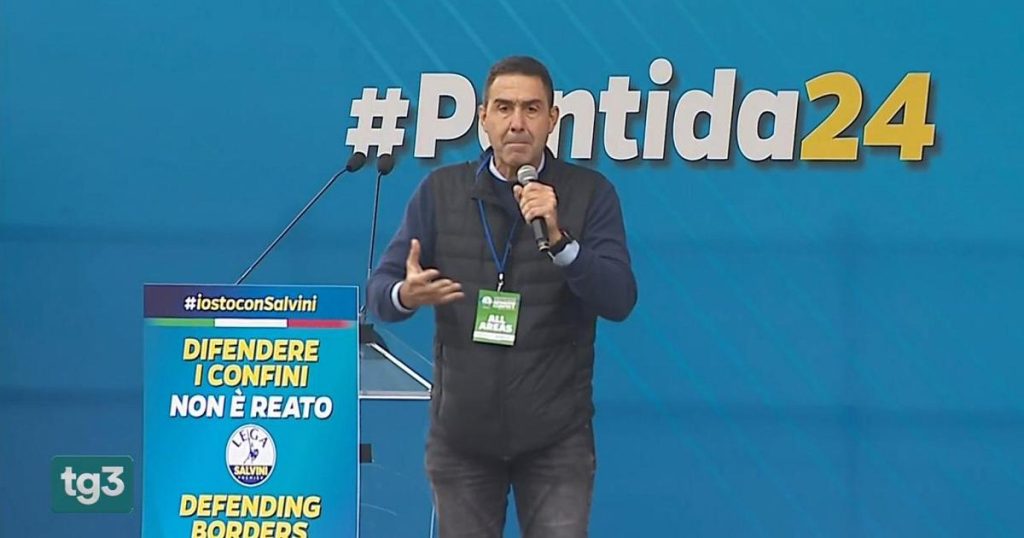Roberto Vannacci, a general and European parliamentarian for the Lega party, is facing potential charges of military defamation following statements made in his book “Il mondo al contrario” (The world upside down), where he expressed his all-encompassing vision. The controversy stems from comments regarding the civil union of a carabinieri military officer. Although the officer did not file a complaint and the prosecutor requested the case be closed, the examining magistrate rejected the request and mentioned “defamation against a certain person, even if not named in the text.” Vannacci remains resolute in his innocence, stating that he is backed by the daily support of many and will not back down. The military union has declared that they will become involved in the legal proceedings if a trial goes forward.
One chapter in Vannacci’s book focuses on multicultural and multiethnic society, while others touch on environmentalism, security, and legitimate self-defense. The publication immediately sparked controversy, with Vannacci declaring during a speech, “This is our Italy, and we do not want to change it with any other – we believe in our traditions, customs, and practices, which are not superior to others, but are our own and we want to preserve them.” The statements made by Vannacci have raised questions about his stance on a variety of social and political issues, with critics questioning his views and the potential impact on the public discourse.
Vannacci’s case has raised concerns about freedom of speech and the limits of political discourse in Italy. While some argue that political figures should have the freedom to express their opinions, others believe that statements such as those made by Vannacci could perpetuate discrimination and intolerance. The involvement of the military union in the legal proceedings also adds a layer of complexity to the case, highlighting the delicate balance between individual rights and the responsibilities of public officials to maintain respect and dignity in their discourse.
The situation surrounding Vannacci’s book and the potential legal implications highlight the challenges and controversies faced by public figures in Italy. The debate over freedom of speech, political rhetoric, and societal values continues to be a point of contention, with differing opinions on the appropriate boundaries of expression. As Vannacci faces the possibility of a trial for military defamation, the case serves as a reminder of the importance of responsible and respectful communication in the public sphere, especially for those in positions of power and influence.
Ultimately, the outcome of Vannacci’s legal situation remains uncertain, with the possibility of a trial looming over his head. The case has sparked discussions about the role of politicians and public figures in shaping public opinions and the potential consequences of their words and actions. As Vannacci maintains his innocence and stands by his statements, the legal proceedings will shed light on the complexities of political discourse and the responsibilities of those in positions of authority. The implications of this case extend beyond Vannacci’s personal situation, serving as a reflection of broader societal debates on freedom of speech, discrimination, and the role of public officials in promoting respectful dialogue and understanding.


